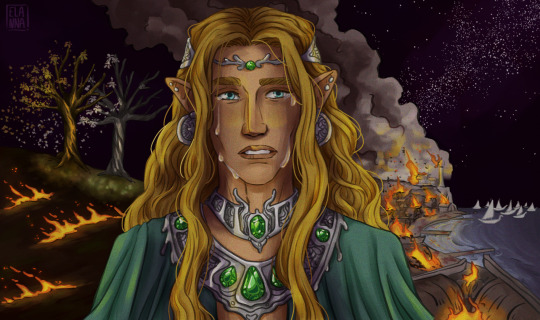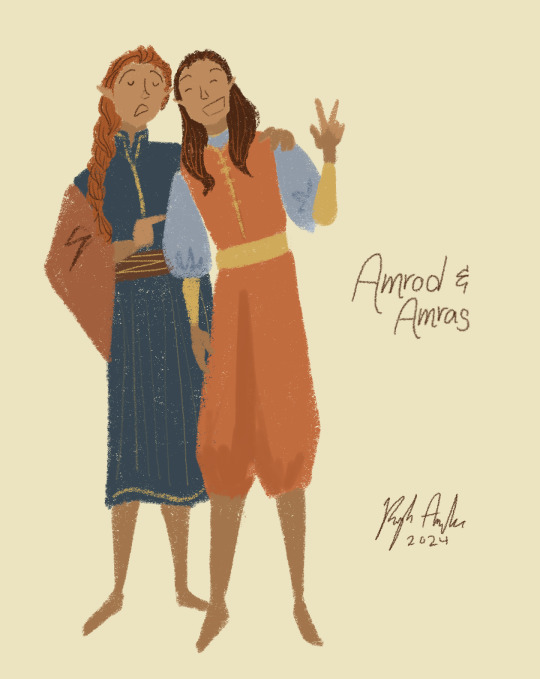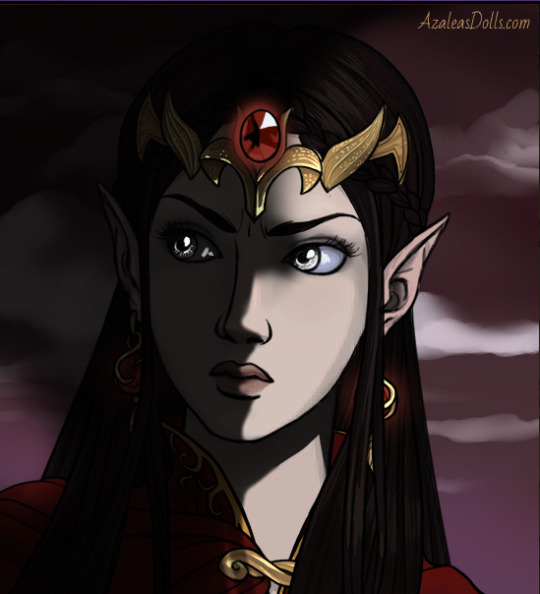#the flight of noldor
Explore tagged Tumblr posts
Text
I made something very silly: Nolofinwë’s Flight of the Noldor playlist








#silmarillion#Fingolfin#feanor#first kinslaying#flight of the Noldor#Tolkien#silmarillion spotify playlists
194 notes
·
View notes
Text
Y'all need to see this omfg this is so good holy shit I'm so normal about this
#it's a rubber#silmarillion#oath of feanor#feanor#curufinwe#tolkien appreciation post#jrr tolkien#tolkien#elves#flight of the noldor#noldor#silmarils#sons of feanor
3K notes
·
View notes
Text

Objectively the funniest Reddit post I've ever seen.
#silmarillion#really the silmarils do very little tho#if you remove them from the story#taking out the rebellion of feanor#the kinslaying#the flight of the noldor#the war against morgoth#beren's quest#the downfall of doriath#the other kinslayings#and the war of wrath#you're left with#uhhhhhhh#well the ainulindale is a pretty good story standing by itself#also it's not like the rings played a very big part in lotr
327 notes
·
View notes
Text

I am going insane over this illustration by Franz Wacik (1883–1938), from a Viennese Beauty and the Beast edition. This. THIS IS FEANOR. This is clearly Fëanor and you can't convince me otherwise. Look his sons back there are even lifting their swords to make the Oath. It's Belle Époque/Edwardian Fëanor. I love it so much.
#tolkien#silm#feanor#flight of the noldor#silmarillion#I'm literally in love with this why am I such a simp for Romantic Era art ffs#Feanor get out of the fairy tale go home you're drunk
145 notes
·
View notes
Text

🏵️ @arafinwean-week day 2 🏵️
Finrod, the Darkening and the Flight of the Noldor
#tolkien#silmarillion#lotr#art#my art#digital art#tolkien art#finrod felagund#darkening#flight of the noldor#arafinweanweek#arafinweanweek2025#alqualonde#telperion#laurelin
128 notes
·
View notes
Text

Ambarussa for day 6 of @feanorianweek!
#ambarussa#amrod#amras#clarisse doodles#tolkien#the silmarillion#illustration#feanorians#feanorianweek#i'm enjoying drawing these characters as i imagine them pre-flight of the noldor. the days when they were still free from tragedy ;-;
237 notes
·
View notes
Text
Yesterday I was checking how the Noldor sailed and there's a wonderful paragraph there. It basically goes like: "Ossë didn't attack the Noldor despite his love for the Teleri, because the Valar had said to not interfere with them." And then, after one or it two sentences, "Uinen made some storms and drowned some ships". (Sorry, it's from memory, but this general meaning.)
Which means it basically went something like this:
Ossë: They killed my friends!
Uinen: What are we going to do about it?
Ossë (who is still on probation I guess): Nothing. There Valar forbade us from doing anything. *sniff* Hey, where are you going?
Uinen: ...shopping.
*a few storms later*
Uinen: ... So, my lord, Ossë didn't do anything. And I'm... Well, I'm not sorry, but I'm ready to take whatever punishment you see fit.
Ulmo: You are on clam duty. Both.
Seriously, Tolkien had so many hidden gems. Yeah Ossë couldn't do anything because of course everybody listens to the Valar, well, except Uinen in the very next sentence, she didn't care.
#no i have no idea what clam duty is#something terribly boring#i know i shouldn't like them for killing Noldor (or anyone)#and that those two are a disaster#...#ossë is so wild and now I'm my mind uinen is too#also i love storms#yes it was bad#and murder#anyway#silm#silmarillion#tolkien legendarium#the silm#the silmarillion#ossë#uinen#flight of the noldor#ulmo
75 notes
·
View notes
Text
Somewhat suspect that the host of Nolofinwë who (barring Fingon) did nothing to treat with Olwë or obtain the swanships subsequently get pissed off at the Sons of Feanor for leaving them behind. If you relinquish Fëanáro as your king, then you also relinquish Fëanáro’s resources. Most elves in the Silmarillion are actually the same level of asshole.
#Exceptions including but not limited to fingon beleg mablung finduilas Edrahil (and company) gwindor (and company)#It occasionally bothers me that the sons of Feanor are treated as being in a position of power when they are really not#They just act like it which may be unfortunate but shouldn’t really be anyone else’s problem#silmarillion#silm#Silm meta#sons of feanor#alqualonde#Nolofinwe#Losgar#Mine#Flight of the noldor
52 notes
·
View notes
Text
Thinking about Fëanor's speech in Tirion and I'm coming to the conclusion that there must have been huge tension coupled with uncertainty of what comes now in the city up until that moment.
What has just happened is an event of catastrophic proportions, the world they know has just shattered, and it doesn't seem as if there was any organised effort among the elves to even asses the damage, let alone pick up the pieces. They are kingless, they are leaderless, no one has told them what to do. The Valar are convening, but they don't know that, or if they do it isn't helpful for the general mood, because waiting is the hardest thing of all. And then Fëanor appears and takes control of all that energy, and that makes history.
#you may not like him all that much but are you going to ignore the person who comes up and announces himself in charge#while you *really* don't know what to do?#my post#Fëanor#flight of the noldor#noldor#the darkening of valinor#tolkien#Silmarillion#silm
147 notes
·
View notes
Text
[...]; but Galadriel, the only woman of the Noldor to stand that day tall and valiant among the contending princes, was eager to be gone. No oaths she swore, but the words of Fëanor concerning Middle-earth had kindled in her heart, for she yearned to see the wide ungarded lands and to rule there a land at her own will.
The Silmarillion, Quenta Silmarillion, Chapter 9: Of the flight of the Noldor
And that's one of the reasons I love Galadriel so much, she clearly is a multi-faceted being undergoing so much character development, yet you only see her in the beginning and in the end.
#tolkien#tolkien meta#the silmarillion#silmarillion#quenta silmarillion#galadriel#lord of the rings#feanor#noldor#flight of the noldor
21 notes
·
View notes
Text

#arda shitposting#silm memes#silmarillion memes#silmarillion#noldor#teleri#feanor#feanorians#finweans#flight of the noldor#beleriand
21 notes
·
View notes
Text

#flight of noldor#feanor#son of finwe#feanaro#house of feanor#house of finwe#darkening of valinor#silmarillion#tolkien#tolkien elves#jrr tolkien#fanart#feanaro curufinwe
26 notes
·
View notes
Text
I recently watched a rendition of Fëanor's speech to the Noldor on TikTok and I gotta say, hearing it spoken gives it so much more power than just reading it.
While reading the Silmarillion I've always thought that it was a very charismatic speech, even if Fëanor is basically asking his people to leave the only home they've known to literally fight a god. Tolkien wrote an absolute banger of a speech where just reading it already has me going "yeah, yeah that makes sense I get why the Noldor would up and leave after hearing this".
But hearing it being spoken and not only read as part of an audiobook, but actually spoken by a voice actor in an interpretation of how Fëanor would've spoken it really gave it a lot more depth that I wasn't expecting. It was very rousing, it's like your mind was silenced and all you can do is hang onto Fëanor's every word. By the time the voice actor finished the speech, I was ready to pack my bags, cross the ocean to a place I've never been to, and potentially die fighting a god. While my brain still paused at the subtle hints of manipulation (because that speech was manipulative to a degree. But I think that deserves its own post), it was mostly overridden by the 'fuck yeah let's do this' mentality.
The people who stayed back (before the Kinslaying of Alqualondë) during the Flight of the Noldor after hearing that speech are the real deal. It honestly takes strength to not get dragged in by the roaring emotions.
242 notes
·
View notes
Text
Introducing an OC of mine
Since the very first years of the first age of the sun, a rumor wandered around the mortal world. A myth, of sorts.
A tale of a lone being, that wanders the known world, face shrouded by grief and magic.
Some claim he is an elf, having strayed from light.
Others say he is a creature beyond what is known, perhaps even a Maia.
During the first age these tales were but rumors, but as the years progressed, and the second age came, they turned to legend.
Stories of a being wandering Middle Earth, watching over specific elves, spread swiftly throughout the land.
No one ever did see his face, but some heard his voice.
Clear as a melody, they said. Soft and gentle, they said, claimed it brought comfort and peace upon whoever heard it.
Most didn’t take these tales seriously, and wrote them off as children‘s nonsense, or imaginations run wild.
None knew the true tale of the wandering elf, for that was what he was.
An elf.
Older than any who sailed from Valinor all those ages ago.
And in grief shrouded he was, for he had lost all he held dear. Some early on, some when he thought they were finally free.
He was an elf born beneath the light of the trees, yet he had found no comfort beneath the gaze of the Valar.
He had been unwanted, too weak for his labour family, a burden upon their house.
His profession was the one of a scribe, for through words and texts he had found a voice that had been denied him so long.
And through that love for literature, he had met the elf that he would dedicate his entire life to.
Fëanor, the Prince of the Noldor.
The ambitious elf had taken young Tarion as his scribe, and from there on, a friendship unlike any other had bloomed between them.
Not a day would go by where the citizens of Tirion Palace wouldn’t see them side by side, Fëanor voicing thoughts out loud, and Tarion scribbling everything down.
They became inseparable, and over the years, more and more trust was put in Tarion.
The young elf went from simply writing down what was said, to drafting documents, plans, even official royal letters. He began joining council meetings, on his Prince‘s request, and eventually got as far as to reply in Fëanor‘s name.
The royal smith trusted his scribe more than anyone else he knew. For Fëanor knew that Tarion‘s loyalty to him was undivided, the scribe was devoted to his Prince alone, answered only to his call, and took orders only from him.
All of Tirion knew, not even the Valar could bend Tarion‘s loyalty.
For Tarion was Fëanor‘s alone.
So when that fateful day came, and Morgoth attacked, Tarion, alongside his Prince, found their King slain on the doorstep of Formenos.
The scribe wept with Fëanor, and held his new, official Sire as he grieved the loss of his only surviving parent.
And so Tarion came to share his new King‘s hatred, it wasn’t hard, for he had been deemed imperfect long ago, rebelled against the gods, and joined the Noldor in the flight.
Though, one must attest that Tarion never raised a blade against his kin, nor a torch to the ships. He remained innocent in light of the Noldor‘s crimes, beyond rebellion itself, and has so to present day.
When the day of the attack came, Tarion pleaded with his King to be patient, to plan before following the enemy, but his King did not listen.
And then, when word reached their camp, that Fëanor had fallen, slain by the enemies fiery demons, Tarion, grief struck, fled the encampment, weeping for his King.
He ran into the woods, weeping, screaming and wailing in sorrow, until he eventually stumbled, and fell to the ground in midst of unknown terrain, and remained there.
Tarion cried long, crying out for his King, even though he knew there would be no answer, that there would never be an answer again.
Fëanor had always come.
Fëanor had always cared.
Fëanor had always protected.
But Fëanor was gone, and would never hold his beloved scribe again.
For day‘s Tarion laid upon the forest floor, weeping, grieving.
Or had it been weeks?
He no longer knew, time seemed meaningless now.
Once he had no more tears to shed, and his eyes were dry and red, Tarion began to curse out the gods who had driven them so far, who had ignored his King‘s pains, had brushed him off, and not listened all the way from when he wept for his mother to when he wept for his father.
They had never cared, had never looked after them, not truly. They, who did not fit the perfect mold, who‘s hearts were not untouched by grief and pain.
Tarion never returned to camp, not that he had wanted to abandon his kin, but that he, for once, did not know the way, and could not handle the idea of returning to an empty tent.
So he wandered. He wandered this new world as his King had wanted to, mapped it out, recorded flora and fauna, met the divers species, and scribed the history that had been and was to come.
Over the span of five centuries Tarion went from place to place, met the second born, as well as fellow elves, who had stayed behind.
But never again did he happen upon his own.
Never again did he see his King‘s son‘s, nor his grandson.
Tarion, ever the wise one, knew the Oath would only bring pain and bloodshed, but could not get himself to step in between.
He could not do that to the boys he had come to love as his own, could not force them to go against him as well.
So he stayed away, even though it pained him greatly, to spare them further pains.
Tarion knew when they began to fall, having seen every last one of the Prince‘s born, and having helped raise each and every one, he could feel when their fëa left the mortal world.
He wept for them, put up altars, and wrote memoriam‘s, so he could remember them as who they had truly been, not who the war and oath had made them into.
When the war of wrath happened, and Beleriand sank, Tarion wandered into Middle Earth.
He began writing a history book, which he later published under the title of 'A history of Noldor'.
For long he wandered this new world, still alone.
And when the second age as well came to an end, and he heard of his King‘s kindhearted grandson‘s fate, he pulled away further.
With Sauron‘s downfall, came a new goal for the ancient scribe.
After all these years, he had only felt six fëa pass on.
And so he finally had a new purpose.
He would find his King‘s remaining son, and at least for him, he would do anything in his power to lighten the burden, to help, to keep safe, give comfort, and perhaps, hopefully, even heal.
#the silmarillion#silmarillion#silm#lotr#lord of the rings#silmarillion headcanon#headcanon#tolkien#feanor#feanorians#sons of feanor#flight of the noldor#first age#oc#oc x canon#maedhros#maglor#celegorm#caranthir#curufin#amrod and amras#celebrimbor#I came up with this oc spme time ago and have since been fleshing him out#he is very dear to me by now and I will definitely continue working on this character#Tarion#Tarion of Tirion#scribe of feanor#tragic characters#silmarillion oc#lotr oc
18 notes
·
View notes
Text
Tbh I don't think that many people who had seen Middle Earth took part in the Flight of the Noldor. The population growth in the first two generations after the Great Journey was large enough that I'm nearly sure the entirety of them could fit into the 10% that never considered leaving– and while I don't think that was the case, I do think the majority of them fell into that class.
11 notes
·
View notes
Text
What if there were elves that left for middle earth from valinor before the flight of the noldor?
You know the short story “the ones who walk away from omelas”?
Basically, valinor is perfect, except when it’s not. And while most elves are willing to bend to the valar for protection, a few of them will not.
They don’t leave with fanfair. They don’t announce their escape.
But every now and then, you’ll notice that an elf has gone away.
They walk out of the door one night and board a small ship. And they sail away to find a better place. Or go back home to the land in which they were made.
And then over half the noldor make a big deal about fleeing valinor and those elves go “jesus christ, guys, we made sure to leave without causing a ruckus for the sole purpose of not getting ‘punished’ by the valar”
#lord of the rings#lotr#silmarillion#lotr elves#flight of the noldor#headcannon guys#don’t take it to seriously#valinor#middle earth
61 notes
·
View notes